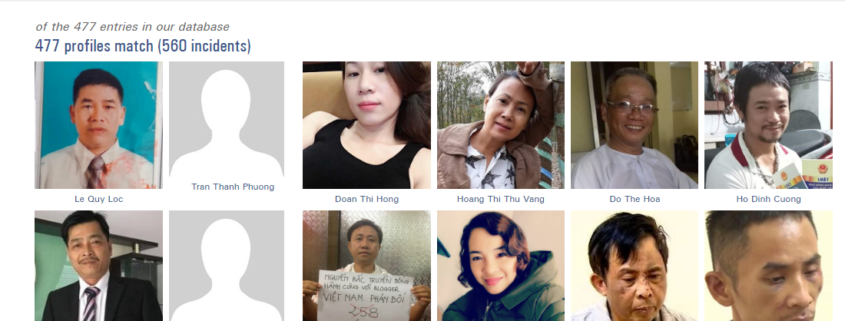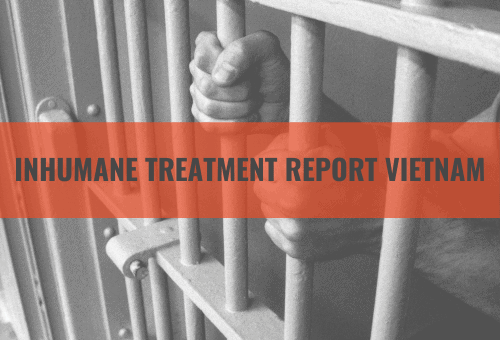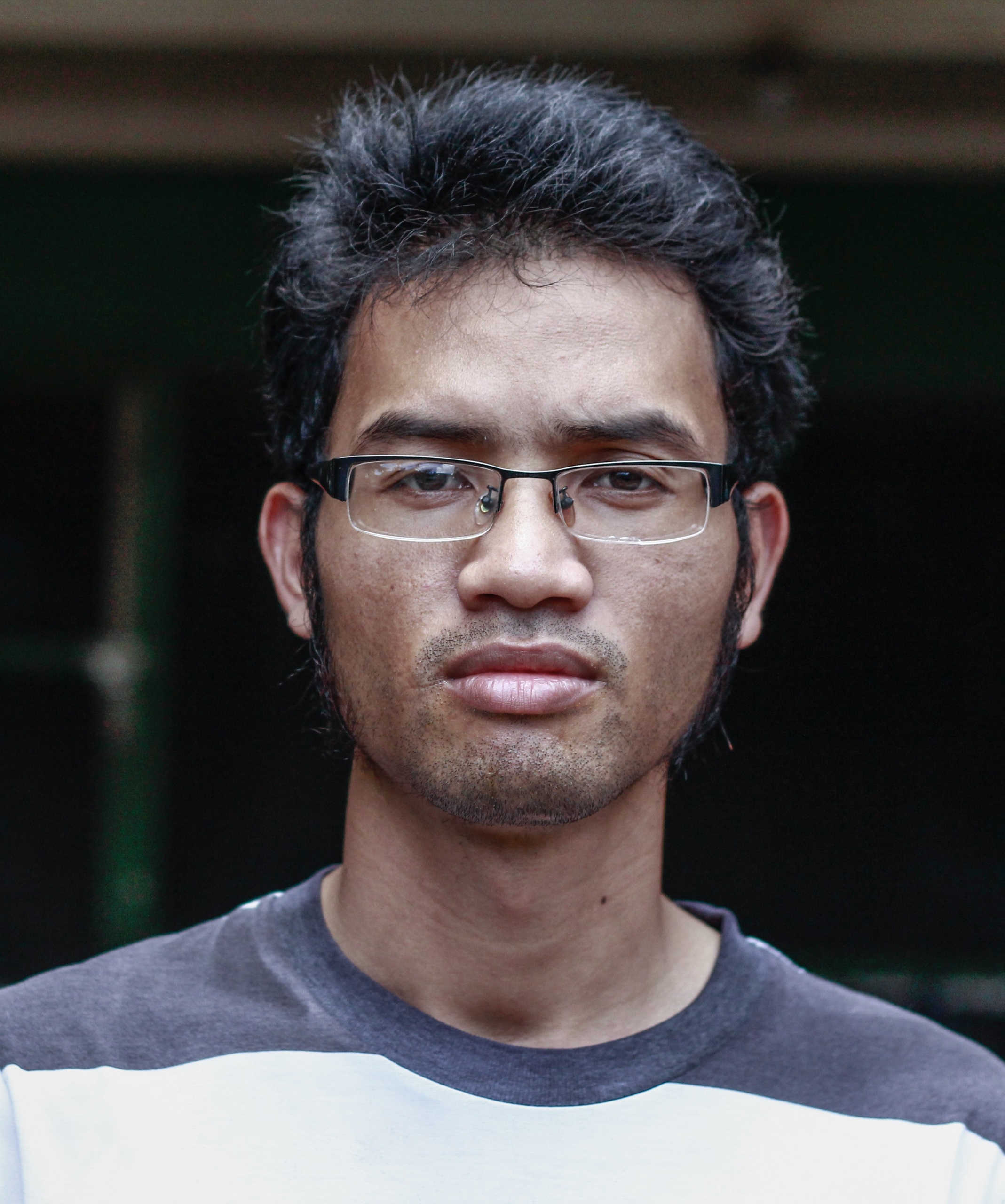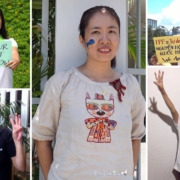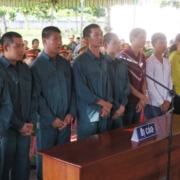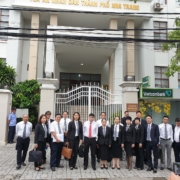What’s New in the Database of Persecuted Activists in Vietnam?
These past few months, we have been working hard to improve the search features in our Database of Persecuted Activists in Vietnam (Database) and other parts of our website. In this article, we highlight the newest additions:
- A tally of the total incidents recorded in the Database
- The number of search results displayed next to specific search criteria
- A general search feature for the Database
- A section in political prisoner profiles for “Highlighted Human Rights Concerns,” including torture
- An option to see multiple occupations in a person’s profile
- An option to view just profiles with multiple harassment incidents
- A new category in the Timeline of Freedom of Expression in Vietnam called “Incidents in Prison”
- An option to use custom time ranges (rather than pre-set time ranges) to generate graph results from the Map of Human Rights Violations
- An option to export data from the Database
General Database Changes
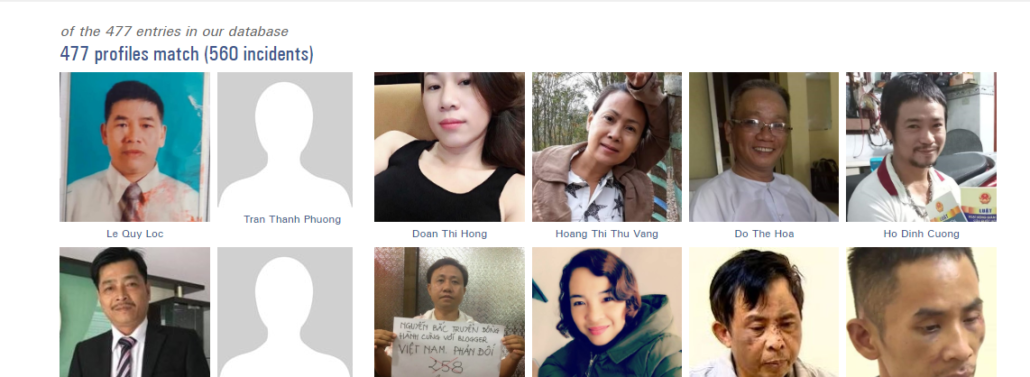
Figure 1: For each search, the total number of incidents is now displayed next to the total number of profiles, as demonstrated by the blue text above the photo squares
At the top of the database page, you will notice a new tally of total incidents. This number, in parentheses next to the total profile count, will help users distinguish between total individual profiles and total harassment incidents (as one person can be subjected to multiple incidents). The incident tally will respond to filters just as the profile tally does.
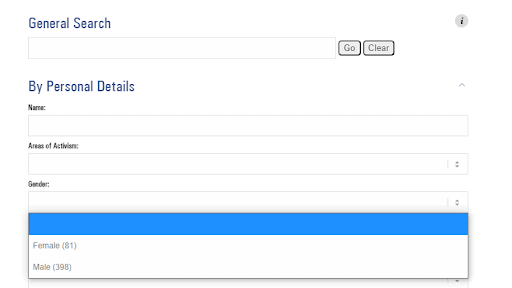
Figure 2: The filters and corresponding results under “Gender”
While the tally at the top of the page tracks individual people vs. individual incidents for the search filters in the database, the parentheses next to each search option track unique individuals. For every search option in the database you will see the number of results for a specific item in parentheses next to the name of the search criteria.
For, example, if you look at the drop-down options for “Gender,” under the heading “By Personal Details,” you will see next to “Female” that there are 81 profiles that match that option and 398 that match “Male.” The feature extends to each level of the data search process. Thus, if you select “Female,” the 81 profiles will appear. Then, if you look at options under “Religion,” for just the selection “Female,” you will see that five profiles of the 81 match for the religion “Hoa Hao Buddhist.”
Another feature that applies to all of the database profiles is the new “General Search” box. Located under “Search Profiles” near the top of the Database page, the “General Search” box will search all profiles in the database for a specific keyword or phrase. Enter a search string and press “Enter” (or click the “Go” button) to perform a search. Click the “i” icon next to the search box for more information about this feature.
Changes to Profile-Specific Details
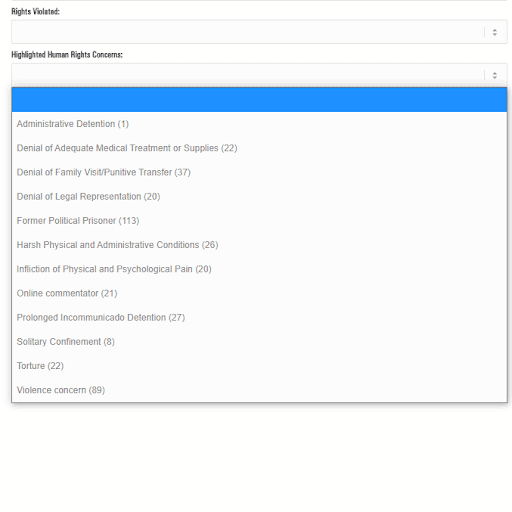
Figure 3: The list of “Highlighted Human Rights Concerns” can be found under the “Persecution Characteristics” drop-down menu
One of the newest filters we have created in the Database is directly related to our aim to provide data for international advocacy efforts. Under “Persecution Characteristics,” we now track “Highlighted Human Rights Concerns,” which include issues of significant importance, such as solitary confinement and torture, as well as additional notes about a prisoner that help provide context for their activism and imprisonment.
The highlighted human rights concerns are: administrative detention, denial of adequate medical treatment or supplies, denial of family visits/punitive transfer, denial of legal representation, former political prisoner, harsh physical and administrative conditions, infliction of physical and psychological pain, prolonged incommunicado detention, solitary confinement, and torture. The category also tracks prisoners who are considered online commentators and those who are alleged to have used violence in their activism. All of these special designations, besides “former political prisoner,” are only tracked for prisoners who were in prison from 2018 onwards.
“Prolonged incommunicado detention,” refers to a pre-trial detention period of eight months or longer. Four months is the customary period for investigatory detention in Vietnam; thus, beyond eight months indicates that a person is still held even after an extension to the original detention period.
Further, “online commentator” only applies to persons arrested and/or tried in 2018 or later. We created the term for the database to reflect the increasing number of arrests of people who are not affiliated with any organized activist movement. While many activists who take direct action in their communities or who are active in civil society groups use social media and online platforms to post content, these specific “online commentators,” are arrested solely for their peaceful expressions of their opinions online.
“Violence concern” is used to flag profiles where authorities have alleged that a person used violent tactics in their activism. In those cases, we use the designation to question the authorities’ application of violence allegations, recognizing that claiming violent methods is a strategy often employed by the authorities to try to discredit activists. These allegations cannot be taken for granted in the absence of a free press environment and an independent judiciary system.
Right now, the “Highlighted Human Rights Concerns” feature only applies to political prisoners, but we hope to expand it to activists at risk in the future so that international organizations can more closely monitor situations of extreme hardship and even torture.
Another change is that some profiles will now contain multiple occupations. We added in the ability to list multiple occupations in profiles to reflect that many activists have more than one job. For example, Phan Kim Khanh is now listed as both a blogger and a student. This is important to recognize the varied roles that activists often play in society and to be able to gather data based on these multiple roles.
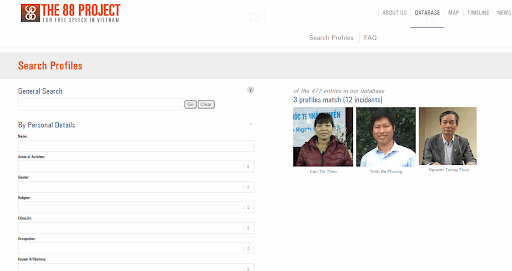
Figure 4: The results of searching for “Multiple Incidents” with 2020 as the “Year of Arrest”
Along with multiple occupations, users can now also search and analyze profiles that have multiple incidents. This will allow users to research people who have been affected by multiple harassment events. To enable this feature, check the “Multiple Incidents” checkbox under the “By Harassment Incidents” drop-down menu. For example, if a user searches for “Multiple Incidents” with 2020 as the “Year of Arrest,” the search will yield three profiles but 12 total incidents, indicating that three people arrested in 2020 had other incidents of harassment perpetrated against them prior to their arrests.
Other Changes to the Website
In our Timeline of Freedom of Expression in Vietnam, we have added a new category. This category is called “Incidents in Prison” and highlights major events that happen to political prisoners while they are behind bars. This can include torture, hunger strikes, denial of medical care, and other important news reported from family visits. This new category is denoted by a green line below the text box entries and a specific icon. You can search the Timeline for just “Incidents in Prison” by only checking that box at the top of the page.
There is also a new change to the Map of Human Rights Violations page. Under the section for “Trends and Patterns,” you can now filter the graph results based on your own custom time range. Under “Date of Incident,” scroll down and click “Custom,” and then enter the beginning and ending date ranges in the MM/DD/YYYY format, or select the dates from the drop-down calendar. Once you select the dates, the graphs will automatically update with the new time range.
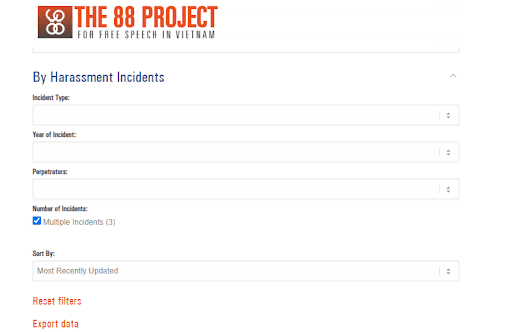
Figure 5: “Export data” option under “Reset filters”
Lastly, users now have the option to export data as a .csv file. This option will export most fields in the database that are not free text fields. The “Export Data” link is located under “Reset filters.” In the future, we hope to be able to implement an export feature that allows users to select exactly which data fields they want to export and in which format.
The 88 Project prides itself on maintaining a comprehensive and up-to-date repository of data on political prisoners and activists at risk in Vietnam. We strive for both accuracy and accessibility and welcome feedback on how we can improve the user experience or the type of data we collect and how it is presented. Contact us, here, with questions or suggestions.
© 2020 The 88 Project


